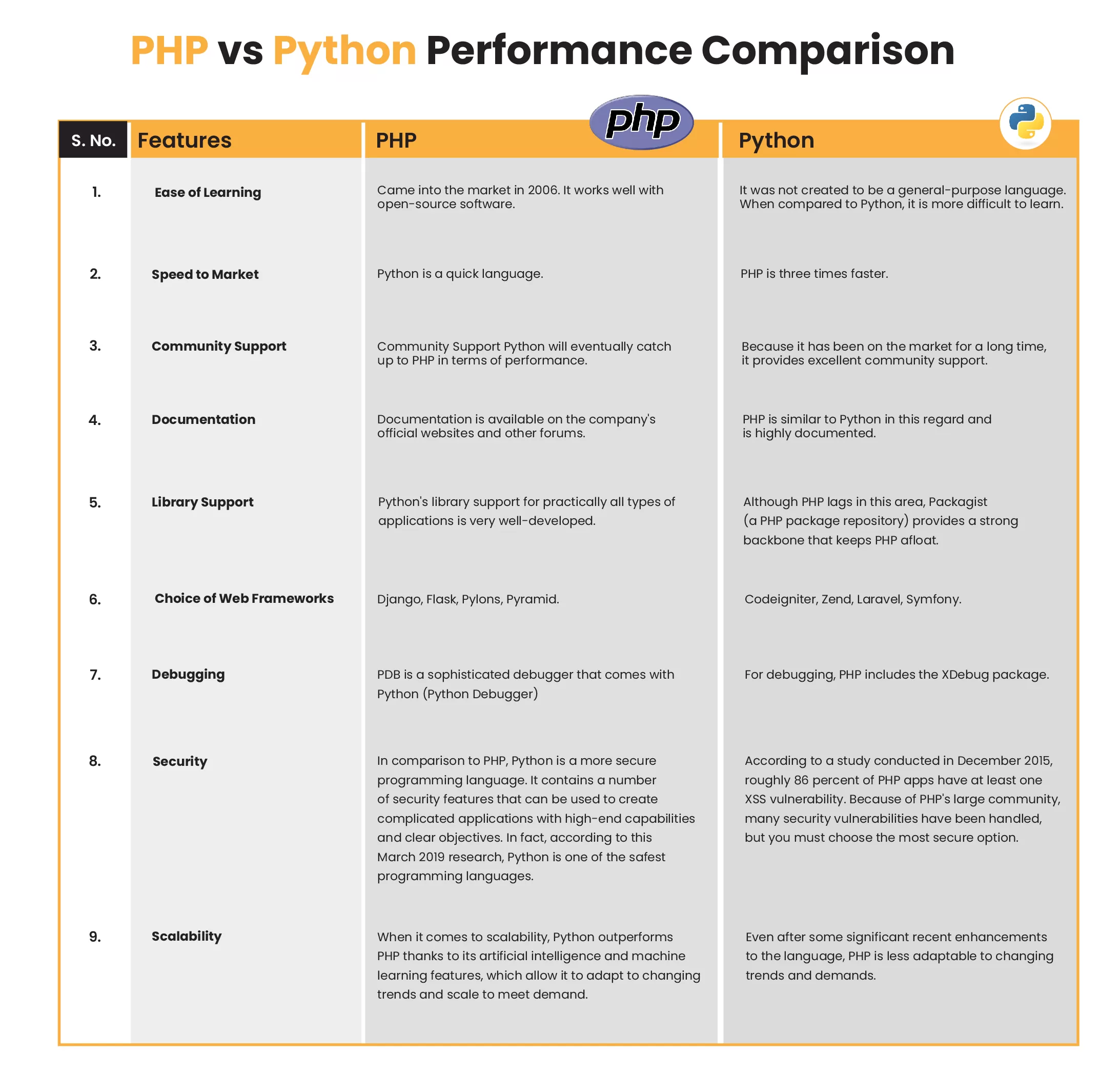Software Developer
A software developer is a professional who designs, develops, and maintains software applications. They use programming languages such as Java, Python, C++, or JavaScript to write code that enables computer programs to perform specific tasks. Software developers work in various industries, including technology, finance, healthcare, and gaming.
As a software developer, you have the opportunity to work on a wide range of projects, from creating mobile applications to building complex software systems. You may collaborate with cross-functional teams, including designers, project managers, and quality assurance engineers, to ensure the successful delivery of software solutions.
Software developers have a strong understanding of coding principles, algorithms, and data structures. They continuously learn and stay updated with the latest technologies and programming languages to enhance their skills and adapt to industry trends.
Furthermore, software developers possess problem-solving skills and the ability to analyze user requirements. They translate these requirements into functional software that meets the needs of the end-users. Testing and debugging code to ensure its functionality and efficiency are also part of their responsibilities.
With the increasing demand for software solutions across industries, the job prospects for software developers are highly promising. They have the opportunity to work for established tech companies or start their own software development ventures.
Overall, software development is a challenging and rewarding career path for individuals who are passionate about coding and creating innovative software solutions. It offers opportunities for professional growth, collaboration, and the chance to contribute to the ever-evolving world of technology.
Web Developer
A web developer is a professional who specializes in building and maintaining websites. They are responsible for the technical aspects of website development, including coding, design, and implementing functionality. Web developers work with programming languages such as HTML, CSS, and JavaScript to create websites that are visually appealing, user-friendly, and responsive across different devices.
As a web developer, you have the opportunity to work on a variety of projects, ranging from simple brochure websites to complex web applications. You may collaborate with designers, content creators, and clients to understand their requirements and translate them into functional web solutions. Web developers are proficient in using various frameworks and libraries, such as React, Angular, or Bootstrap, to streamline the development process.
Web developers are well-versed in front-end and back-end development. Front-end web developers focus on the visual and interactive aspects of a website, ensuring that it looks and functions seamlessly for users. Back-end web developers, on the other hand, handle the server-side programming and database management to ensure the smooth functioning and security of websites.
With the increasing demand for online presence and e-commerce, web developers are in high demand across industries. Whether it’s designing corporate websites, e-commerce platforms, or web applications, web developers play a crucial role in establishing and maintaining a strong digital presence for businesses.
Furthermore, as a web developer, you have the flexibility to work as a freelancer or as part of a development team within a company. The field of web development is constantly evolving, presenting continuous learning opportunities to stay updated with the latest technologies and techniques. This allows web developers to bring more value to their clients or employers and deliver innovative web solutions.
In summary, web development is a dynamic and ever-evolving field that offers exciting opportunities for individuals with a strong passion for coding and design. It allows professionals to create visually appealing and functional websites while leveraging their technical skills to meet the demands of the digital landscape.
Mobile App Developer
A mobile app developer is a professional who specializes in designing, developing, and maintaining mobile applications for smartphones and tablets. They work with programming languages such as Swift for iOS and Java or Kotlin for Android to create mobile apps that cater to the needs of users in various industries.
As a mobile app developer, you have the opportunity to work on a wide range of projects, from creating consumer-facing apps to developing enterprise solutions. You may collaborate with user experience (UX) designers, product managers, and quality assurance teams to ensure that mobile apps are user-friendly, visually appealing, and functional.
Mobile app developers possess strong coding skills and a good understanding of mobile platforms and their respective guidelines. They follow industry best practices and ensure that their apps are optimized for performance, security, and compatibility across different devices and operating systems.
Moreover, mobile app developers have a deep knowledge of mobile app development frameworks and tools. They may use frameworks such as React Native or Xamarin to build cross-platform apps, which can run on both iOS and Android devices using a single codebase. This allows for efficient development and easier maintenance of mobile apps.
The demand for mobile applications continues to grow, making mobile app developers highly sought after in the job market. With the increasing reliance on smartphones and the ever-expanding app ecosystem, businesses across various industries are investing in mobile app development to reach and engage their target audience.
Furthermore, as a mobile app developer, you have the opportunity to work independently as a freelancer or as part of a development team in a company. This field provides room for creativity and innovation, allowing you to explore new features, functionalities, and integration with emerging technologies such as artificial intelligence (AI) or augmented reality (AR).
In summary, mobile app development is a dynamic and challenging field that offers exciting opportunities for individuals who have a passion for creating innovative mobile solutions. With the continuous growth of the mobile market, mobile app developers play a vital role in helping businesses connect with their customers and stay competitive in the digital age.
Game Developer
A game developer is a professional who designs, develops, and maintains video games. They work on creating interactive experiences for players by using coding, design, and various technologies. Game developers collaborate with artists, designers, and audio engineers to bring the game concept to life.
As a game developer, you have the opportunity to work on a diverse range of projects, from mobile games to console or PC games. You may specialize in different areas of game development, such as gameplay programming, graphics programming, or artificial intelligence (AI). By utilizing programming languages such as C++, C#, or Java, game developers create the rules, mechanics, and logic that define the gameplay experience.
Game developers are also proficient in using game development engines and software tools, such as Unity or Unreal Engine, to streamline the development process. These tools provide a framework for designing and implementing game assets, animations, and physics simulations, allowing developers to focus more on the creative aspects of game design.
The gaming industry continues to grow rapidly, providing abundant job opportunities for game developers. With the rise of mobile gaming, virtual reality (VR), and augmented reality (AR), game developers are at the forefront of innovation in the entertainment industry.
Moreover, game developers have the opportunity to work in various settings. They can join established game development studios, work as freelancers, or even create their own indie game companies. This field allows for creativity and the exploration of new technologies, enabling game developers to bring their unique visions and ideas to life.
Game development is a collaborative process, requiring strong teamwork and problem-solving skills. The ability to work well in a team, communicate effectively, and manage deadlines is essential for success in this field.
In summary, game development is an exciting and fast-paced industry that combines technical skills with creativity. Game developers have the opportunity to create immersive and engaging experiences for players, pushing the boundaries of technology and storytelling. With the ever-growing popularity of video games, the demand for skilled game developers continues to rise.
Data Scientist
A data scientist is a professional who uses scientific methods, algorithms, and statistics to analyze and interpret complex data sets. They play a crucial role in extracting valuable insights and making data-driven decisions. Data scientists work across various industries, including finance, healthcare, marketing, and technology.
As a data scientist, you have the opportunity to work on diverse projects, such as predictive modeling, data mining, and developing machine learning algorithms. You may collaborate with cross-functional teams, including analysts, engineers, and business stakeholders, to identify business problems and provide data-driven solutions.
Data scientists possess strong programming skills, particularly in languages such as Python or R, which are commonly used for data analysis and machine learning. They have expertise in data manipulation, cleaning, and wrangling to ensure the accuracy and quality of the data being analyzed.
Moreover, data scientists are skilled in statistical analysis and machine learning techniques. They apply statistical models, algorithms, and techniques to uncover patterns, correlations, and trends within data sets. This enables them to make accurate predictions and recommendations based on the data.
The field of data science is rapidly growing, as organizations increasingly recognize the value of data-driven insights. With the exponential growth of data, data scientists are in high demand to derive actionable insights from large and complex datasets.
Data scientists also play a significant role in the development and implementation of artificial intelligence (AI) and machine learning (ML) technologies. By leveraging AI and ML algorithms, they enable businesses to automate processes, improve decision-making, and enhance customer experiences.
Furthermore, as a data scientist, you can work in various settings, such as research institutions, technology companies, or consulting firms. The field provides opportunities for continuous learning and development, as new techniques, algorithms, and technologies emerge.
In summary, data science is a rapidly expanding field that offers exciting opportunities for individuals with a passion for analyzing and extracting insights from data. Data scientists play a crucial role in helping organizations make data-driven decisions, solve complex problems, and leverage the power of data for innovation and growth.
Cybersecurity Analyst
A cybersecurity analyst is a professional responsible for protecting an organization’s systems and networks from security threats and vulnerabilities. They work to prevent unauthorized access, detect potential breaches, and respond to cyberattacks. Cybersecurity analysts play a vital role in maintaining the security and integrity of sensitive data and information.
As a cybersecurity analyst, you have the opportunity to work in various industries, including finance, healthcare, government, and technology. You may collaborate with IT teams, risk management departments, and executives to develop and implement security measures that align with the organization’s needs and industry best practices.
Cybersecurity analysts possess expertise in identifying vulnerabilities within systems and networks and implementing appropriate security controls. They use a variety of tools and techniques to conduct vulnerability assessments, penetration testing, and risk assessments. By continuously monitoring and analyzing network traffic and system logs, cybersecurity analysts can proactively identify potential threats and respond swiftly to mitigate the risks.
Moreover, cybersecurity analysts are well-versed in security incident response. They develop incident response plans and protocols to ensure the organization can effectively respond to and recover from cyber incidents. This involves investigating security breaches, analyzing the impact, and implementing measures to prevent future incidents.
The demand for cybersecurity analysts continues to grow as the number of cyber threats and attacks increases. Organizations are recognizing the importance of safeguarding their digital assets and are investing in robust cybersecurity infrastructure. This presents numerous job opportunities for skilled cybersecurity analysts.
Cybersecurity is an ever-evolving field, and analysts must stay updated with the latest security trends, technologies, and regulatory requirements. Continuous learning and professional development are essential to keep pace with the rapidly changing cybersecurity landscape.
Furthermore, as a cybersecurity analyst, you may have the opportunity to pursue industry certifications such as Certified Information Systems Security Professional (CISSP) or Certified Ethical Hacker (CEH). These certifications validate your expertise and enhance your career prospects in the field.
In summary, cybersecurity analysts are vital in protecting organizations from cyber threats and ensuring the confidentiality, integrity, and availability of data. In an increasingly digital world, the role of cybersecurity analysts is pivotal in safeguarding against online vulnerabilities and maintaining a secure computing environment.
IT Project Manager
An IT project manager is a professional responsible for planning, executing, and overseeing technology projects within an organization. They are the key point of contact for stakeholders, managing resources, timelines, and budgets to ensure successful project delivery. IT project managers play a crucial role in aligning technology initiatives with business goals.
As an IT project manager, you have the opportunity to work on a wide range of projects, including software development, infrastructure upgrades, and system implementations. You collaborate with cross-functional teams, including developers, designers, engineers, and business analysts, to ensure that project goals and requirements are met.
IT project managers possess a combination of technical knowledge and strong project management skills. They have a deep understanding of technology trends, industry standards, and best practices. This allows them to effectively manage project risks, assess the feasibility of technical solutions, and make informed decisions.
Moreover, IT project managers are proficient in project management methodologies such as Agile or Waterfall. They create project plans, allocate resources, track progress, and communicate project status updates to stakeholders. Effective communication and leadership skills are essential in guiding teams and ensuring collaboration and timely project delivery.
The role of an IT project manager is crucial in the successful execution of technology projects. They are responsible for managing project scope, ensuring quality deliverables, and optimizing resource allocation. By effectively managing project budgets and timelines, IT project managers contribute to the overall efficiency and success of the organization.
Furthermore, IT project management offers opportunities for professional growth and advancement. There is a growing demand for skilled IT project managers who can handle the complexities and challenges of managing technology projects within budget and schedule constraints.
It is important for IT project managers to continuously enhance their skills and stay updated with new technologies and project management practices. They can pursue certifications such as Project Management Professional (PMP) to validate their knowledge and expertise in the field.
In summary, IT project managers play a critical role in successfully executing technology projects, ensuring that they meet the organization’s goals and requirements. With their technical expertise and project management skills, IT project managers contribute to the efficient and effective implementation of technology initiatives.
Systems Analyst
A systems analyst is a professional who analyzes and evaluates an organization’s existing systems and processes to identify areas for improvement and recommend solutions. They bridge the gap between business needs and technology by understanding business requirements and translating them into technical specifications. Systems analysts play a critical role in optimizing and implementing efficient systems within an organization.
As a systems analyst, you have the opportunity to work on a variety of projects, such as system upgrades, process reengineering, or software implementations. You collaborate with business stakeholders, end-users, and IT teams to understand their requirements and gather relevant data for analysis.
Systems analysts possess a strong understanding of both business and technology. They have a deep knowledge of system analysis techniques, requirements gathering, and system design principles. By utilizing tools and methodologies such as UML (Unified Modeling Language) or BPMN (Business Process Model and Notation), systems analysts create visual representations and documentation to communicate ideas and specifications.
Moreover, systems analysts employ problem-solving skills to analyze complex systems and processes. They identify inefficiencies, bottlenecks, or areas for automation, and propose solutions to enhance performance and productivity. This can involve recommending new technologies, optimizing workflows, or integrating systems to streamline operations.
The demand for systems analysts continues to grow as organizations look to leverage technology to improve efficiency and stay competitive. Systems analysts play a crucial role in aligning technology solutions with business objectives and ensuring that systems and processes meet the needs of the organization.
Furthermore, systems analysts often serve as a liaison between business stakeholders and IT teams. Their ability to effectively communicate and translate technical concepts into easily understandable language is key to successful project implementation. They work closely with developers, testers, and project managers to ensure the delivery of quality software solutions.
Continuous learning is essential in the field of systems analysis, as technology and business requirements evolve. Systems analysts stay updated with new tools, techniques, and industry trends to enhance their skills and deliver innovative solutions for the organization.
In summary, systems analysts play a crucial role in analyzing, designing, and implementing efficient systems within an organization. By understanding business requirements and translating them into technical specifications, they bridge the gap between technology and business needs, ensuring that systems and processes are optimized for success.
Database Administrator
A database administrator (DBA) is a professional responsible for the management, optimization, and security of an organization’s databases. They ensure the efficient and reliable storage, organization, and retrieval of data to meet the needs of the organization. Database administrators play a critical role in safeguarding data integrity and supporting data-driven decision-making.
As a database administrator, you have the opportunity to work with various database management systems (DBMS) such as Oracle, Microsoft SQL Server, or MySQL. You manage database infrastructure, including installation, configuration, and maintenance, to ensure optimal performance and availability.
Database administrators possess a deep understanding of database design principles, normalization, and indexing. They analyze and optimize database structures and queries to improve efficiency and response time. By monitoring database performance and conducting regular backups, DBAs ensure data integrity and minimize the risk of data loss.
Moreover, DBAs are responsible for implementing and enforcing database security measures. They design and manage user access controls, implement encryption, and ensure compliance with data protection regulations. DBAs also play a critical role in disaster recovery planning and execution.
The demand for database administrators continues to grow as organizations increasingly rely on data-driven insights. DBAs actively participate in data integration and migration projects, ensuring the smooth transfer of data across systems and platforms.
Furthermore, database administrators often collaborate with developers, system administrators, and data analysts to understand their requirements and support their data-related needs. They provide guidance and expertise to ensure that databases are optimized for application performance and meet the organization’s goals.
Continuous learning is essential for database administrators to stay updated with new database technologies and evolving industry trends. They can pursue certifications such as Oracle Certified Professional (OCP) or Microsoft Certified: Azure Database Administrator Associate to validate their skills and enhance their career prospects.
In summary, database administrators play a vital role in managing, optimizing, and securing an organization’s databases. With their technical expertise and understanding of database systems, they ensure data integrity, performance, and availability, contributing to the efficiency and effectiveness of the organization’s data management processes.
DevOps Engineer
A DevOps engineer is a professional who focuses on the collaboration between development and operations teams to streamline and automate the software development and deployment process. They aim to enhance efficiency, scalability, and reliability by implementing continuous integration and continuous deployment (CI/CD) practices. DevOps engineers play a crucial role in bridging the gap between software development and operational stability.
As a DevOps engineer, you have the opportunity to work on a variety of projects, ranging from managing infrastructure as code to automating software testing and deployment processes. You collaborate with developers, system administrators, and other stakeholders to ensure a seamless and efficient software development lifecycle.
DevOps engineers possess a strong understanding of development tools, such as Git for version control and Jenkins for continuous integration. They are proficient in scripting languages, such as Bash or Python, to automate tasks and create deployment pipelines. By utilizing technologies like Docker or Kubernetes, DevOps engineers ensure that applications can be deployed consistently across various environments.
Moreover, DevOps engineers focus on improving system reliability and performance. They implement monitoring and logging solutions, allowing for better visibility into application performance and diagnostics. By utilizing cloud services like AWS or Azure, DevOps engineers enable scalability and resilience in the systems they manage.
The demand for DevOps engineers continues to grow as organizations strive for faster, more reliable software delivery. DevOps practices help organizations achieve shorter development cycles, quicker time to market, and improved customer satisfaction.
Furthermore, as a DevOps engineer, you have the opportunity to work with cutting-edge technologies and keep up with the latest industry trends. Continuous learning and staying updated with emerging tools and techniques are essential for DevOps engineers to drive innovation within organizations.
Collaboration and effective communication skills are key for DevOps engineers. They work closely with development, operation, and other cross-functional teams, fostering a culture of collaboration and shared responsibility. DevOps engineers also play a crucial role in promoting and implementing DevOps principles and practices within the organization.
In summary, DevOps engineers are instrumental in ensuring a seamless integration between development and operations teams. Their expertise in automation, infrastructure management, and continuous deployment allows organizations to achieve faster and more reliable software delivery, ultimately improving business outcomes and customer satisfaction.

























